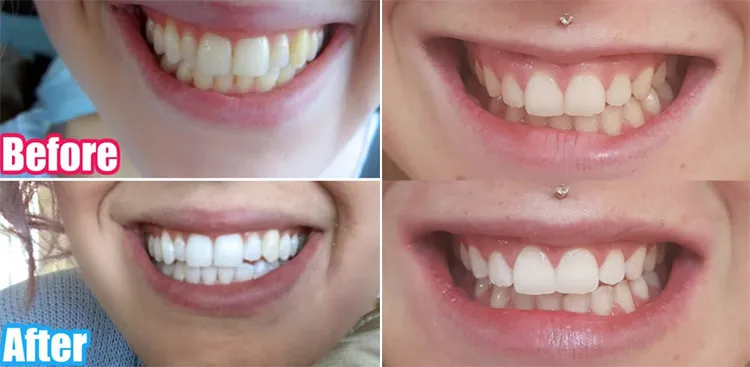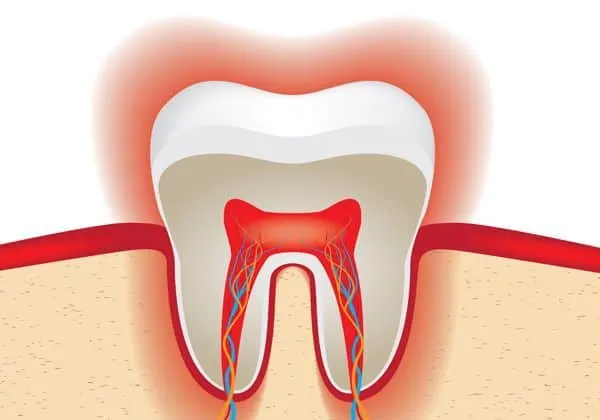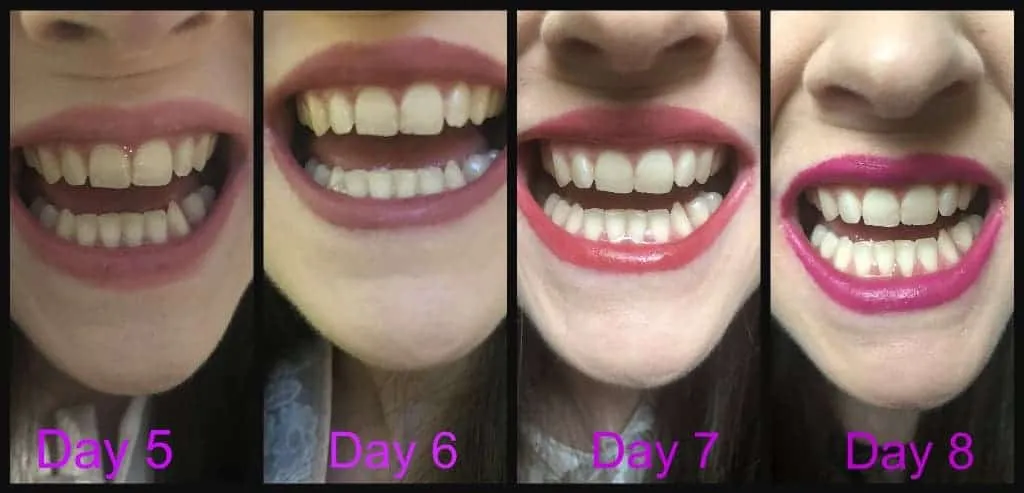Understanding Teeth Sensitivity After Whitening
Teeth whitening is a popular cosmetic procedure that can significantly enhance your smile. However, a common side effect is tooth sensitivity. This sensitivity, often experienced as a sharp, shooting pain, can occur during or after the whitening process. Understanding why this happens is the first step in managing and reducing the discomfort. The intensity of the sensitivity varies greatly among individuals, ranging from mild twinges to more significant discomfort. Fortunately, most cases of sensitivity are temporary and can be effectively managed with the right approach. This guide provides a comprehensive overview of the causes, prevention strategies, and treatment options for dealing with sensitive teeth after whitening, ensuring you can achieve a brighter smile with minimal discomfort.
What Causes Tooth Sensitivity After Whitening
Tooth sensitivity after whitening is primarily due to the way the whitening agents interact with the tooth structure. These agents, typically hydrogen peroxide or carbamide peroxide, penetrate the enamel to break down the stains. This process can temporarily affect the nerves within the teeth, leading to sensitivity. Several factors contribute to the likelihood and severity of this sensitivity, including the concentration of the whitening agent, the duration of its application, and individual variations in tooth structure and health. Understanding the underlying mechanisms is crucial for developing effective strategies to mitigate the side effects.
The Whitening Process and Tooth Structure

Tooth enamel, the outermost layer of the tooth, is naturally porous, containing microscopic tubules that lead to the inner layers of the tooth, including the dentin and the pulp where the nerves reside. Whitening agents work by penetrating these pores and breaking down the stain molecules. This process can cause the tubules to open up slightly, allowing the whitening agent to reach the nerves more easily. This increased exposure can trigger sensitivity as the nerves become temporarily irritated. Healthy enamel and dentin can minimize sensitivity, but the process itself always carries a degree of risk for the nerves. This is why it is imperative to be careful and follow expert advice when considering such procedure.
Common Whitening Ingredients and Their Impact
The active ingredients in most teeth whitening products are hydrogen peroxide and carbamide peroxide. Hydrogen peroxide is the stronger of the two and is often used in professional treatments. Carbamide peroxide breaks down into hydrogen peroxide when it comes into contact with water, making it a common ingredient in at-home whitening kits. The concentration of these ingredients is a key factor in determining the level of sensitivity experienced. Higher concentrations tend to produce quicker results but also increase the likelihood and severity of sensitivity. Other additives in whitening products may also contribute to the overall effect on tooth sensitivity. Therefore, always follow product instructions and consult with a dental professional.
Factors That Increase Sensitivity
Several factors can increase the likelihood of experiencing sensitivity during or after teeth whitening. These include existing dental conditions, the strength of the whitening agent, and the application method. Knowing these factors can help you take proactive steps to minimize discomfort. Taking precautions and making informed choices about your whitening procedure can significantly improve your experience. If any of these factors apply to you it’s better to consult with a dentist before undergoing the whitening process.
Pre-existing Sensitivity Issues

Individuals who already have sensitive teeth or have conditions such as receding gums, exposed roots, or enamel erosion are more prone to experiencing increased sensitivity after whitening. These conditions expose the dentin, which contains nerve endings, making the teeth more vulnerable to the whitening agents. If you have any of these pre-existing conditions, consult your dentist before undergoing teeth whitening. Your dentist can assess your oral health and recommend the most appropriate whitening approach or suggest alternative treatments to minimize discomfort.
Whitening Product Strength
The concentration of the whitening agent significantly impacts the degree of sensitivity. Professional treatments, which use higher concentrations of hydrogen peroxide, may cause more intense but often short-lived sensitivity compared to at-home kits with lower concentrations of carbamide peroxide. The duration of application also plays a role; longer exposure times can exacerbate sensitivity. It is essential to follow the manufacturer’s instructions precisely and, if possible, consult your dentist before beginning a whitening treatment to determine the best product strength for your needs.
How to Prevent Sensitivity Before Whitening
Proactive measures taken before starting teeth whitening can significantly reduce the chances of developing sensitivity. These strategies focus on preparing your teeth and gums for the whitening process. This can help make the experience more comfortable and enjoyable. Careful planning and preparation are key to achieving a brighter smile without unnecessary discomfort. Always consult with a dentist before undergoing any procedure.
Consult Your Dentist

Before starting any teeth whitening procedure, it’s crucial to consult with your dentist. A dental professional can assess the health of your teeth and gums, identify any pre-existing conditions that could increase sensitivity, and recommend the most appropriate whitening method for your specific needs. They can also provide professional cleaning to remove plaque and surface stains, ensuring better results. Your dentist can advise you on the best products, concentrations, and application techniques to minimize potential discomfort. They are also available to help you during the process if you experience any issues.
Choose the Right Whitening Method
Selecting the right whitening method is essential for managing sensitivity. Consider the strength of the whitening agent and the duration of the treatment. At-home whitening kits, which typically use lower concentrations of peroxide, can be a good option for people with sensitive teeth, as the gradual approach reduces the risk of extreme sensitivity. Professional treatments, although more potent, can be performed under the supervision of a dentist, who can take precautions to minimize discomfort. Your dentist can also offer in-office treatments that are quicker and potentially less painful. Discuss all the methods with your dentist to make the best decision.
Use Sensitivity Toothpaste
Using toothpaste designed for sensitive teeth for several weeks before starting your whitening treatment can help desensitize your teeth. These toothpastes typically contain ingredients like potassium nitrate or stannous fluoride, which help block the tubules in the dentin and reduce nerve sensitivity. Brushing with sensitivity toothpaste can create a protective barrier that minimizes the impact of the whitening agent. This can make the whitening process much more tolerable. Look for products specifically labeled for sensitive teeth and follow the instructions carefully. Continue to use this toothpaste throughout and after the whitening process for added protection.
How to Treat Sensitivity After Whitening

Even with preventative measures, some level of sensitivity after teeth whitening is common. Fortunately, several effective treatments can provide relief and minimize discomfort. These treatments focus on soothing the nerves and protecting the teeth from further irritation. It is important to address any discomfort promptly to ensure that you can continue the whitening process or simply feel better after. Most of the solutions are available over the counter, but always consult with your dentist for personalized advice.
Use Sensitivity Toothpaste and Fluoride Treatments
Continue using sensitivity toothpaste, as it is a primary defense against discomfort. The active ingredients in these toothpastes help to block the tubules and reduce the nerve irritation. You can also use over-the-counter fluoride treatments, such as a fluoride rinse or a high-fluoride toothpaste, to strengthen enamel and further reduce sensitivity. Fluoride helps to remineralize the enamel and create a protective barrier. These products are often readily available at your local pharmacy. Remember to follow the instructions on the product label and, if needed, consult with your dentist about the best application method and frequency.
Over-the-Counter Pain Relief
For immediate relief, over-the-counter pain relievers such as ibuprofen or acetaminophen can be effective in managing any discomfort. These medications can help reduce inflammation and alleviate pain. Be sure to follow the recommended dosage instructions and do not exceed the advised amount. If the sensitivity is severe or persistent, it’s crucial to consult your dentist to rule out any underlying issues and receive personalized treatment recommendations. Over-the-counter pain relief is a temporary solution, and persistent pain needs professional attention.
Professional Dental Treatments

If over-the-counter treatments do not provide sufficient relief, your dentist may recommend professional dental treatments. These can include fluoride varnish applications, which provide a concentrated dose of fluoride directly to the teeth, or prescription-strength sensitivity toothpaste. In some cases, your dentist may also recommend a desensitizing agent to be applied to the teeth. For more severe cases, dental bonding can be used to cover exposed roots. Your dentist may also suggest adjusting the whitening treatment or pausing it until the sensitivity subsides. Always follow your dentist’s recommendations.
Tips for Managing Sensitivity
Beyond specific treatments, lifestyle adjustments and careful oral hygiene practices can further help in managing and reducing sensitivity after teeth whitening. These tips focus on avoiding irritants, protecting your teeth, and making informed choices about what you consume. Following these strategies can make the whitening experience more comfortable and support your long-term oral health. It also helps to keep the positive impact of the whitening procedure. These small steps can make a significant difference.
Avoid Trigger Foods and Drinks
Certain foods and drinks can exacerbate tooth sensitivity. These include very hot or cold items, acidic foods such as citrus fruits and tomatoes, and sugary items. During and immediately after teeth whitening, it’s best to avoid these triggers to minimize discomfort. Opt for lukewarm or room-temperature beverages and foods. When possible, consume items that are less likely to cause sensitivity. This can greatly improve your comfort level while your teeth are adjusting. Pay attention to your body and adjust your diet as necessary.
Maintain Excellent Oral Hygiene

Maintaining excellent oral hygiene is vital for managing sensitivity. Brush your teeth gently with a soft-bristled toothbrush to avoid further irritation of the enamel and gums. Be thorough, but avoid aggressive brushing, which can wear away enamel. Floss daily to remove plaque and food particles between your teeth, but do so gently. Regular dental check-ups and professional cleanings are also crucial. They help to remove any buildup and ensure the overall health of your teeth and gums. Maintaining good oral hygiene is an essential aspect of managing and preventing tooth sensitivity.
Consider Whitening Alternatives
If you find that you are highly sensitive to teeth whitening treatments, you may want to explore alternative options for achieving a brighter smile. Some alternatives include professional cleaning and polishing, which can remove surface stains and give your teeth a cleaner appearance. Other cosmetic dental procedures, like veneers or cosmetic bonding, can also brighten your teeth and are often less likely to cause sensitivity. Discuss these options with your dentist to find the best solution that meets your specific needs. You should consider these alternatives as a way to maintain good dental health.
When to See a Dentist
While some sensitivity after teeth whitening is normal, it’s essential to know when to seek professional help. If your sensitivity is severe, persistent, or worsens over time, consult your dentist. Other warning signs include pain that is not relieved by over-the-counter treatments, pain that interferes with your daily activities, or any signs of infection, such as swelling or fever. Your dentist can examine your teeth and gums, diagnose any underlying issues, and recommend appropriate treatment. Do not hesitate to consult a dentist if you are concerned about any issues. Remember that it’s better to be safe than sorry when it comes to your oral health.
